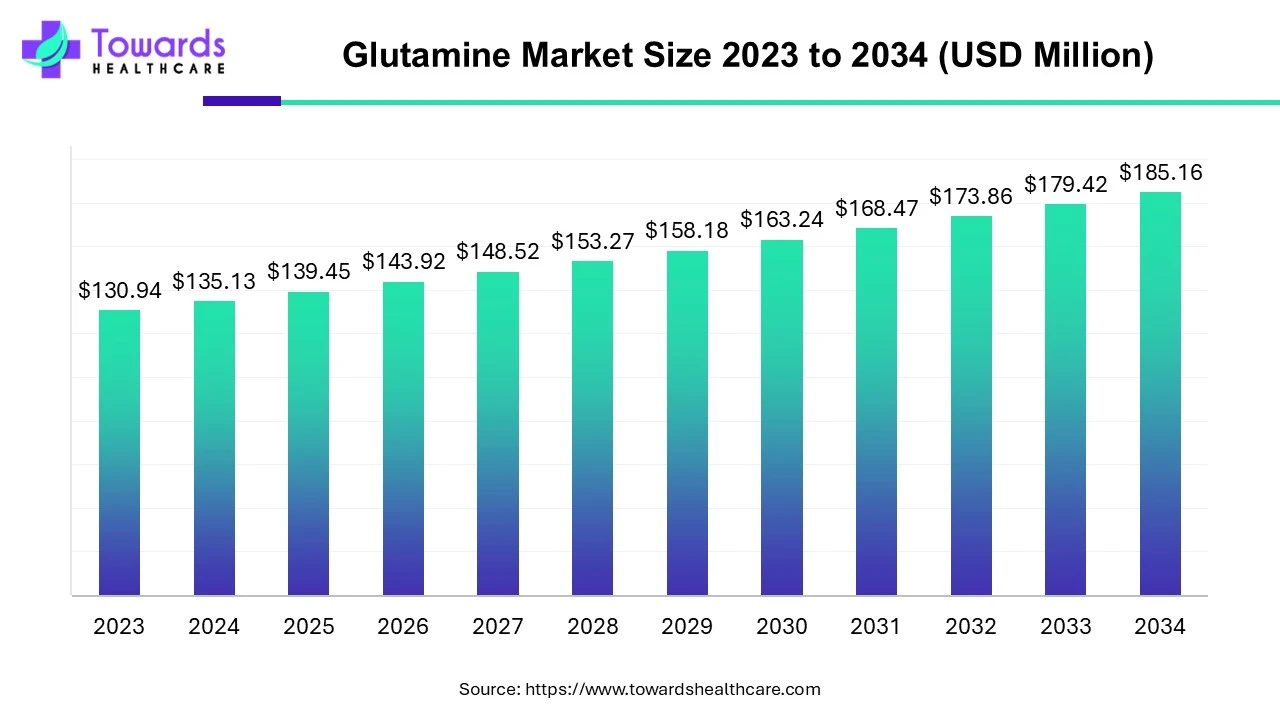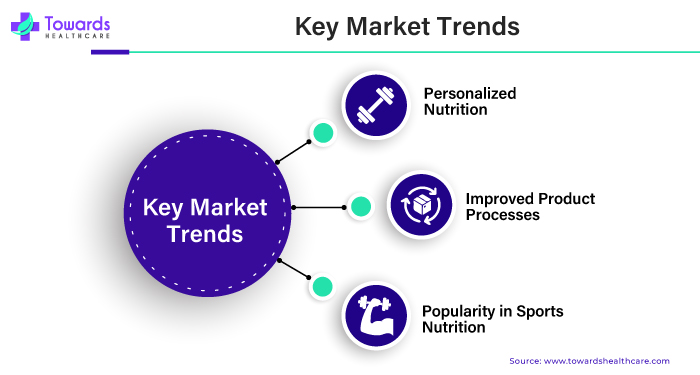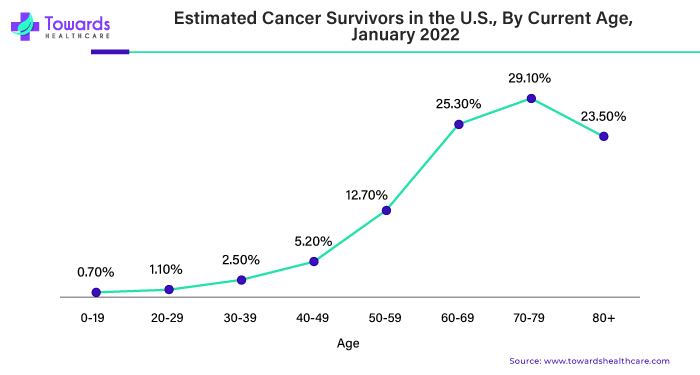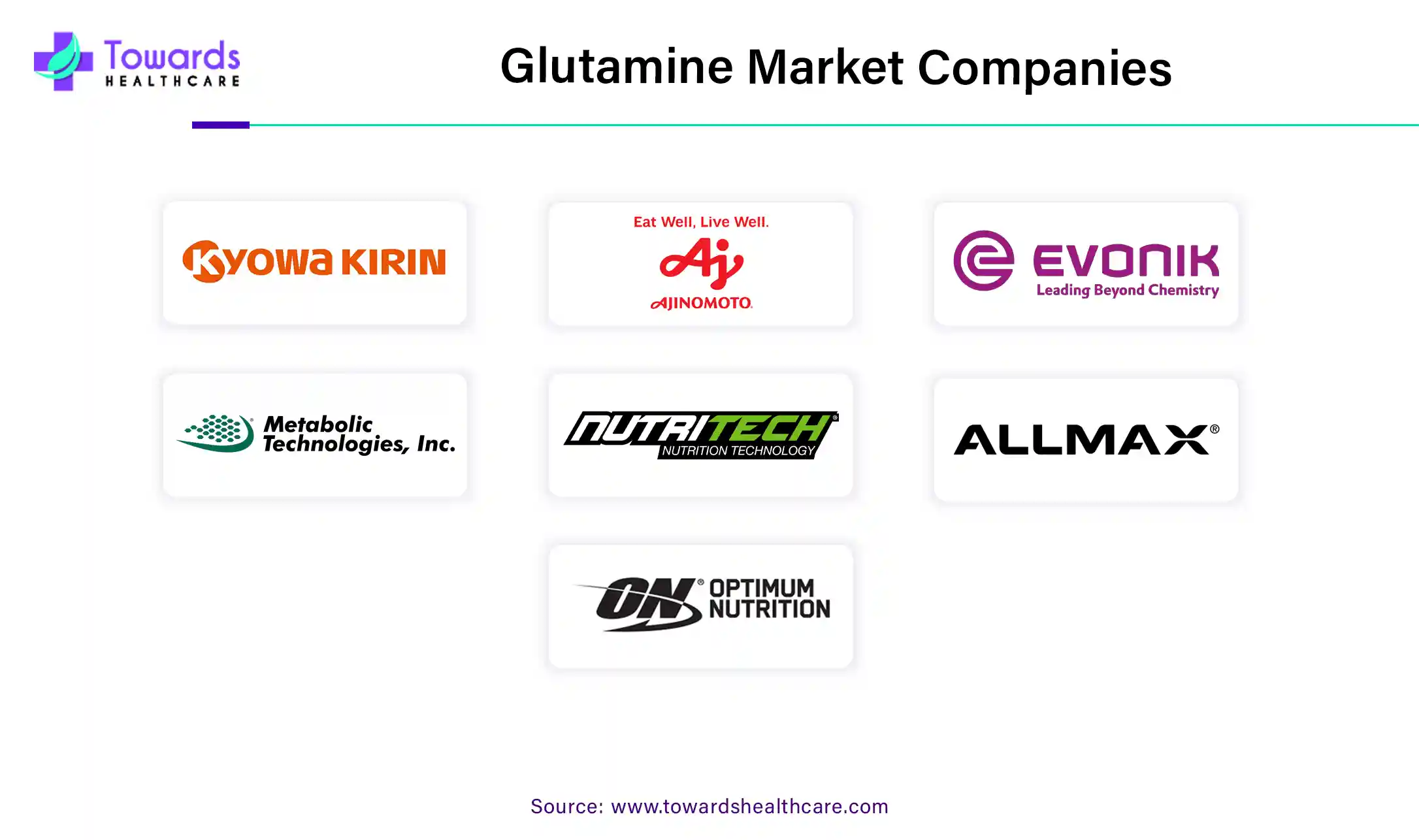December 2025

The global glutamine market size is calculated at USD 135.13 million in 2024 and is expected to be worth USD 185.16 million by 2034, expanding at a CAGR of 3.2% from 2024 to 2034.

MuscleTech Platinum 100% Glutamine is a top-notch sports nutrition product made of pure L-glutamine powder. It's been proven in studies to help muscles recover faster and decrease soreness after working out. This product is in high demand because athletes find it useful for their training needs.
The glutamine market has witnessed significant growth owing to its diverse applications and increasing awareness of its health benefits. Glutamine, an essential amino acid found abundantly in various foods, serves as a fundamental building block for proteins. It supports immune function by aiding in the body's defense against infections and also plays a crucial role in maintaining digestive health, particularly in the integrity of the intestinal lining. Given its importance, glutamine has become a popular dietary supplement, with healthcare professionals and consumers recognizing its significance in promoting overall well-being.
In 2022, the American Cancer Society estimated that about 1.92 million people in the United States will get cancer, and around 609,360 will pass away from it. Globally, that adds up to 9.6 million lives lost to cancer. Because diseases like cancer are becoming more common, there's a significant need for new and better treatments all around the world. One treatment that's getting attention is using a substance called glutamine to help manage cancer. Glutamine is a type of amino acid that seems to help people going through cancer treatment stay healthier overall. Adding glutamine to cancer treatments is part of a more significant effort to make sure patients do better and feel better during their treatment. Since diseases like cancer keep causing big problems, it's really important for doctors and scientists to keep looking for new and better ways to treat them.
Recent Newsletter
Additionally, The rising prevalence of medical conditions such as cancer, HIV/AIDS, and digestive disorders has led to an increased demand for glutamine. Patients with these conditions often have elevated requirements for glutamine to support their treatment and manage associated symptoms. Pharmaceutical formulations and supplements containing glutamine have become essential components of their therapeutic regimens.
Furthermore, ongoing research into the therapeutic potential of glutamine continues to drive innovation in product development and treatment protocols. As scientists uncover its physiological functions and benefits, new applications and formulations are being explored, further expanding the glutamine market. The outlook for the glutamine market remains promising, with continued growth anticipated as its importance in healthcare and medical treatment becomes increasingly recognized and validated.

Glutamine supplementation becomes increasingly crucial in medical conditions like cancer, HIV/AIDS, and digestive disorders due to the significant roles this amino acid plays in supporting various bodily functions. In cancer treatment, glutamine aids in bolstering the immune system and protecting the integrity of the digestive tract, both of which can be compromised by chemotherapy and radiation therapy.
For instance,
In 2023, Advancing Cancer Treatment by Targeting Glutamine Metabolism—A Roadmap". This article outlines a roadmap for researchers developing glutamine-targeting therapies, highlighting key areas needing further investigation and potential challenges to overcome.
In 2023, the American Cancer Society anticipated approximately 1,958,310 new cancer cases and roughly 609,820 cancer-related deaths in the United States. While cancer rates had been decreasing overall, prostate cancer had been increasing by 3% annually from 2014 to 2019, resulting in around 99,000 additional cases.
The situation is better for other types of cancer in men compared to women. Glutamine is a treatment option for cancer.

Cancer cells undergo metabolic reprogramming to fuel their rapid growth, prompting researchers to explore new treatments beyond chemotherapy and radiotherapy. Drugs targeting this process, including those focused on glutamine metabolism, show promise in animal studies and clinical trials. Glutamine, crucial for various cellular functions, is vital for cancer cell growth and proliferation. Blocking glutamine metabolism has emerged as a potential cancer treatment strategy, focusing on disrupting key enzymes and pathways. Additionally, investigating how glutamine blockade influences the tumor microenvironment could improve the effectiveness of immunotherapy in cancer treatment.
The high metabolic demands of cancer cells can also lead to glutamine depletion, making supplementation essential to meet increased demands and mitigate treatment-related side effects such as diarrhea, mucositis, and weight loss. Similarly, individuals with HIV/AIDS often face gastrointestinal issues and heightened inflammation, further elevating the need for glutamine to maintain intestinal health and support immune function. Furthermore, patients with digestive disorders like inflammatory bowel disease (IBD), irritable bowel syndrome (IBS), and celiac disease can benefit from glutamine supplementation to alleviate symptoms such as abdominal pain, diarrhea, and bloating. Glutamine aids in repairing damaged tissues and enhancing gut barrier function, promoting overall digestive health and well-being. In essence, the demand for glutamine products stems from the specific requirements of patients undergoing treatment for these medical conditions, where supplementation serves as a supportive measure to manage symptoms, maintain immune function, and support overall health.
Glutamine is an amino acid, which is like a building block for proteins in our bodies. When we exercise, our muscles go through a lot of stress and sometimes get small tears, making them sore and tired. Glutamine helps repair these muscles, making them stronger and ready for the next workout. It's like a handy repair kit for your muscles. But that's not all glutamine does. Our immune system, which helps us fight off sickness and stay healthy, can also take a hit when working out hard. Glutamine boosts it, helping to keep our immune system strong and our bodies healthy, even during intense training sessions.
The glutamine market is booming because more and more people are getting sick with diseases like heart conditions, obesity, cancer, high blood pressure, and diabetes. This is mainly because many people live inactive lifestyles, where they're moving around a little. The World Health Organization discovered that one in four adults and almost 80% of teenagers worldwide aren't getting physical activity. This means they need to be more active to stay healthy. So, because of this, there will be a more significant demand for glutamine in sports nutrition products among people in the future.
Because of these fantastic benefits, more and more athletes and fitness enthusiasts are turning to glutamine supplements to help them perform better and recover faster. They realize that caring for their muscles and immune system is just as important as the workouts themselves. And as the demand for sports nutrition products like these grows, so does the market for glutamine supplements. It's becoming a must-have for anyone serious about their fitness goals.
Despite their potential to offer various health benefits, Glutamine supplements are less well-known among consumers than other popular supplements like protein powders or multivitamins. Many people may need to learn what glutamine is or how it could help them. Educating consumers about glutamine's advantages and its role in boosting health and performance is crucial for increasing its popularity and market growth. This education could involve explaining how glutamine supports the immune system, aids in muscle recovery after exercise, and contributes to overall well-being.
People who are into fitness might be interested in learning that glutamine can help them recover faster from intense workouts, allowing them to train harder and more frequently. Individuals dealing with medical conditions like cancer or digestive disorders could benefit from understanding how glutamine supplementation might assist in managing their symptoms and improving their quality of life.
By spreading awareness about the benefits of glutamine in simple terms that consumers can understand, such as through informative articles, social media campaigns, or educational materials in stores, more people may become interested in trying glutamine supplements. This increased awareness and interest could lead to greater demand for glutamine products, ultimately driving market growth.
By product, the L-glutamine segment dominated the glutamine market in 2023. L-glutamine is the biologically active form of glutamine in the human body. It is used to make proteins and perform other functions. It is more preferred than D-glutamine as it appears to be relatively unimportant in living organisms. Additionally, L-glutamine is the most abundant amino acid in the blood and body fluids.
By form, the powder segment led the global glutamine market in 2023. Powders are relatively lightweight and can be stored and transported easily without degradation. Their ease of administration and convenience make them a preferred choice. Powders are mixed with beverages like milk and water to consume. In addition, powders are comparatively more stable than crystals and do not require preservatives for their storage.
By distribution channel, the offline retail segment held the largest share of the glutamine market in 2023. Offline retail stores such as supermarkets, retail pharmacies, hospital pharmacies, and other specialty stores sell glutamine. These stores consist of a variety of options with different pricing, enabling customers to choose from a wide range of products. Offline stores also provide special discounts and other offers to attract more customers. They also provide personalized services such as same-day home delivery, boosting the market.
By end-user, the sports nutritional products segment held a dominant presence in the glutamine market in 2023. Glutamine is widely used as a sports nutritional product due to its diverse applications. It is a key molecule in metabolism and energy production and contributes nitrogen to many critical biochemical reactions. It is considered the best muscle recovery supplement. Also, it reduces muscle soreness and boosts immune function. The rising demand for health supplement intake by athletes and fitness enthusiasts potentiates the segment’s growth.
In North America, especially in the United States, more people are interested in staying healthy and fit. This interest has led to a lot of people using apps and supplements to help them. At the same time, there's also been an increase in obesity cases. The U.S. has an extensive industry focused on health and fitness, with many adults joining gyms. People are choosing healthier options, like supplements and over-processed foods. The government is also encouraging more people to get involved in sports and competitions.
In July 2024, ANI Pharmaceuticals, Inc. announced that the U.S. FDA approved its L-Glutamine Oral Powder, a generic version of the reference-listed drug (RLD) Endari. As of May 2024, Endari reported the U.S. sales of $20.1 million, based on the IQVIA data.
The Government of India invested around $360.6 million in Nutrition International to support high-impact nutrition programming over the next 6 years. The investment was made to save lives, improve health, and generate education & economic outcomes in over 60 countries, primarily in Asia and Africa.
In Asia-Pacific, including places like China, Japan, and India, more people are interested in staying healthy and fit, especially among young adults. This has led to a growing market for supplements like glutamine, a type of amino acid. This trend is even more vital in China, where sports nutrition is really popular. People in the region are focusing more on healthy lifestyles and have more money to spend on nutrition products. With the Olympics happening in countries like Japan, South Korea, and China, there's even more interest in sports and nutrition products. East Asian governments are also encouraging people to exercise more to fight obesity, which is helping the market grow. For example, in China, over 70% of people drink sports drinks, and about 65% drink energy drinks.
The Chinese government prioritizes physical education in schools, requiring students to engage in at least two hours of daily physical activity. China’s 14th Five-Year Plan and its long-range objectives through 2035 call for implementing a preschool nutrition improvement program.
In India, there are 30 million carriers of sickle cell disease, and the mean prevalence is 3.3% across the nation. The increasing awareness of sports participation and a nutritional diet encourages the consumption of glutamine. The Indian government allocated a budget of Rs 3,794 crore in FY 2025-26 to promote and support sports in India.
The competitive landscape of the glutamine market encompasses a wide range of elements that shape how companies vie for market dominance and consumer attention within the industry. Innovation plays a crucial role in the glutamine market, as companies continuously strive to develop new product formulations, delivery methods, or applications. This could involve incorporating new ingredients, enhancing bioavailability, or improving taste and texture. How companies distribute their glutamine products also impacts their competitive position. This includes selling through traditional retail channels such as supermarkets, pharmacies, and health food stores, as well as e-commerce platforms, direct-to-consumer models, and partnerships with gyms, fitness centers, or healthcare professionals.
Nikhil Lalwani, President and CEO of ANI Pharmaceuticals, Inc., commented on its US FDA ANDA approval of the first generic product, L-Glutamine Oral Powder, that the company continues to demonstrate the strong capabilities and execution of its R&D team. He also added that the company aims to focus on patients in need, and the providers who care for them have access to their high-quality therapeutics.

By Product
By Form
By Distribution Channel
By End-User
By Geography
December 2025
November 2025
November 2025
November 2025